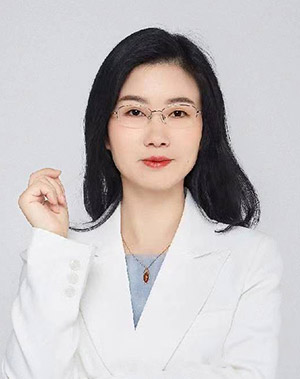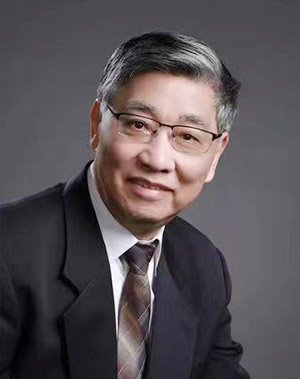
Technological Sciences

Lithium niobate photonic quantum chip
Lithium niobate crystal has a wide light transmission range and high electro-optical, acousto-optic, thermal and nonlinear coefficients. It has stable chemical properties and low transmission loss. It is an ideal photonic material. It has important applications in the field of contemporary information optoelectronics and laser, and is known as "optical silicon". The team completed the project that has used the quasi-phase-matching principle to develop an optical superlattice and successfully applied it to all-solid-state lasers, electro-optical modulators, high-frequency filters and other new optoelectronic devices through the regulation and control of microstructure ferroelectric fields in lithium niobate crystals, which has promoted the development of relevant technologies. This project further expands the quasi-phase-matching principle to the field of quantum optics and quantum information technology, develops the theory of the coherent control of optical quantum states using microstructures, and develops a variety of lithium niobate optical superlattices for the generation and control of photonic quantum states, which can be used in many technical domains of photonic quantum information. Since 2010, the project has been aimed at the research target of lithium niobate photonic quantum chip, combining the ferroelectric domain engineering with modern photonic integration technology, and integrating different functional units such as entangled photon generation, electro-optical modulation, photon interference, wavelength division multiplexing, etc. into the sinlge lithium niobate waveguide chip for the first time in 2014. The controllable operation of quantum state on the chip was completed, and a number of key parameters, including photon-pair generation rate, quantum state switching rate, wavelength tuning bandwidth, etc., reached the international best level at that time. This work shows the feasibility of lithium niobate chips for programmable large-scale photonic integration. At the same time, it also promotes the development of miniaturized and chip-based optical quantum devices and equipment development, opening up a technological route different from silicon-based photonic quantum chips.
2. Introduction of the winner:

Zhu Shining, born in December 1949 in Nanjing, Jiangsu Province. Professor of Nanjing University, academician of the Chinese Academy of Sciences; graduated from Huaiyin Normal University in 1981, stayed in the school to teach, and later obtained a master's degree (1988) and doctorate from Nanjing University (1996). He is currently the deputy director of the Academic Committee of Nanjing University and the dean of Yuxiu Academy; the head of the mathematics and science group of the editorial committee of the National Science Review (NSR), the editorial committee of China Science and other publications, and the editor-in-chief of the Journal of Artificial Crystal. He was the dean of the School of Physics of Nanjing University, the director of the Department of Physics and the leader of the College of Engineering and Applied Sciences; the member of the Standing Committee of the Science and Technology Commission and the director of the Department of Materials of the Ministry of Education of China; a member of Guidance and Coordination Committee and a member of the overall expert group of the National Nano Science and Technology; a member of the National Key Basic Research and Development Plan (973) Advisory Group.
He is mainly engaged in the research of microstructure functional materials and physics, including: basic theory of microstructure control of classical light and non-classical light field, the development of new experiments and characterization technologies, and the development of practical application of microstructures in the field of materials and information. He has worked systematically in ferroelectric crystal domain engineering and room temperature poling technology, optical superlattice and laser technology, quasi-phase matching nonlinear optics, quantum optics and optical metamaterials. As the main project leader, he has won the first prize of the National Natural Science Award (2006) and the second prize of the National Teaching Achievement Award (2018). Personal honors include: "Seeking Truth" Outstanding Young Scholar (1998), Fellow of the American Optical Society (2013), Fellow of the American Physical Society (2017) and the first Jiangsu Province Major Contribution Award for Basic Research (2019).

Xu Ping, born in Yancheng City, Jiangsu Province in May 1980. Researcher and doctoral supervisor of the Institute for Quantum Information, College of Computer Science and Technology, National University of Defense Technology of China. She is the director of the Optical Society of China, a member of the Quantum Information Branch of the Chinese Electronics Society. She got degrees of Bachelor and Doctor from Nanjing University. From 2008 to 2016, she served as a lecturer, associate professor and professor of the School of Physics, Nanjing University, joined the National University of Defense Technology in 2017. The winner of the National Talent Project, National Outstanding Youth Fund, National Hundred Outstanding Doctoral Thesis, Hunan Province's Leading Talents in Science and Technology.
Xu Ping has been engaged in the research of photonic quantum chips for a long time, and her research interests are the fabrication technology of photonic quantum chips and the study of on-chip quantum information technology. She established a system theory of entangled photon generation and manipulation in optical superlattices; experiment verified that the single periodically poled crystals have the ability to integrate multi-functions such as entangled photon generation, high-dimensional control, beam splitting, and focusing; developed the first lithium niobate photonic quantum chip in the world, including developing lithium niobate photonic chip processing, and forming independent processes such as chip design, processing, testing, optical packaging, electrical packaging, and whole machine packaging. As the main project leader, she has won the first prize of the Ministry of Education Natural Science Award of China(2020), the Important Achievement Award of China Optics(2014), the Rao Yutai Basic Optics Award (2013), and the Jiangsu Youth Optical Technology Award (2016).